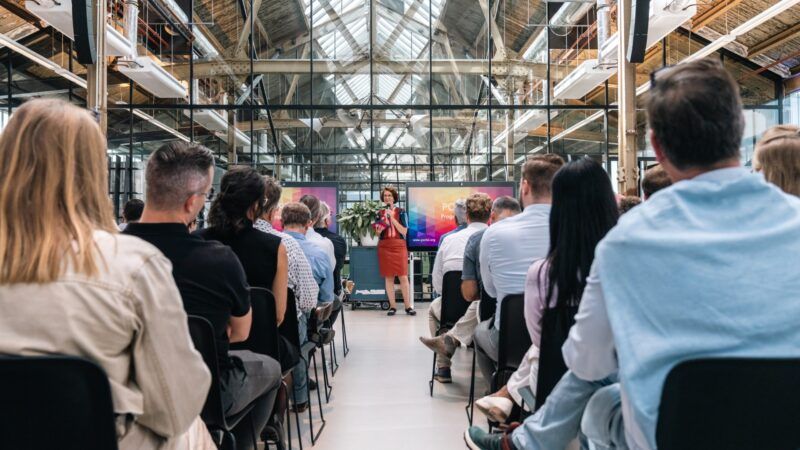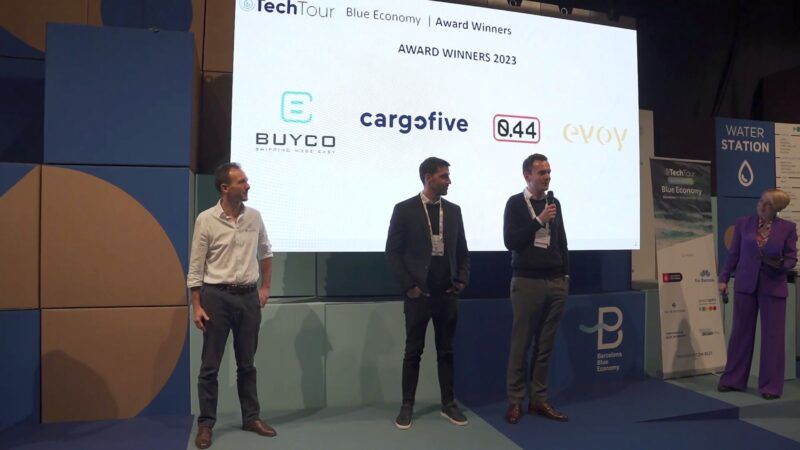
Ports 4.0 funds 30 new innovative projects in pre-commercial phase in the port maritime sector
The second call for pre-commercial projects of Ports 4.0, the fund created by Spanish ports and managed by Puertos del Estado to finance innovative initiatives in port maritime ecosystems, awards 11.1 million euros to 30 initiatives.

Alba González is Innovation Projects Technician at the Port de Barcelona.

This second call of the Ports 4.0 fund closes with the proposal to award €11.1M to a total of 30 projects out of the 116 initially submitted in the pre-commercial modality. This category of projects includes those at a technological maturity level (TRL) between 3 and 6, i.e. between a "critical analytical and experimental function and/or proof of concept characteristic" and "system or subsystem validation in a relevant environment".
Grants awarded to pre-commercial projects will help to evolve their technology maturity level to TRL 7 or "system validation in a real environment". The call was launched in March 2022 and closed for applications in June 2022 with 95 applications accepted out of 116 submitted, finally resulting in the aforementioned allocation of €11.1M to 30 projects in October 2023.
Since the creation of the Ports 4.0 fund in 2020, a total of two calls per modality have been launched and 63 ideas have been financed, 21 projects in the commercial phase and 48 in the pre-commercial phase. It is thus one of the most important innovation funds worldwide oriented towards the maritime and port environment.
In February 2023, the second call was resolved in the categories of ideas (TRL 1 and 2) and commercial projects (TRL 7, 8 and 9), with a result of 30 and 12 winners respectively.

The most recurrent technologies in this call to solve the challenges of the logistics-port community are AI and machine learning, sensorization (IoT), blockchain or 5G (Fp).
Some of the most recurrent technologies used in this call to solve the challenges of the logistics-port community are artificial intelligence and machine learning, sensorisation (IoT), blockchain and 5G.
The subsidised projects undertake to carry out a pilot test to verify the development in a real environment and with the collaboration of a facilitating agent from the Spanish port-logistics community. A facilitating agent is the Port Authority, concessionaire or public or private agent of the logistics-port community in whose facilities the project is carried out. Although any company in the port-logistic community can act as a facilitating agent, it is normally the Port Authorities that offer this support. Some examples of port authorities acting as facilitating agents for winning projects in this last call are Algeciras with 5 projects, Barcelona with 5, Bilbao with 4, Las Palmas with 3 and Valencia with 3.
Some of the selected projects
Below, we have highlighted significant projects to show the diversity of innovative initiatives that are being carried out in port environments. All the winning projects can be consulted here.
- Compass+: monitoring the effects of waves caused by the passage of vessels
The Compass+ project, led by Siport21, is an innovative operational control solution. By means of non-intrusive monitoring systems, Compass+ predicts the movements produced in different ship transit scenarios, taking into account the weather conditions to establish recommendations on their entry or exit from the port in order to prevent loading and unloading operations from being affected. It is therefore a predictive tool that helps decision-making, both in the management of loading and unloading operations and in traffic control. The Compass+ project uses various technologies such as AI/ML, IoT, 5G and sensorisation.A grant of €483,775.68 has been awarded for this project, which will allow the project's TRL to evolve into a commercial project at TRL 7.
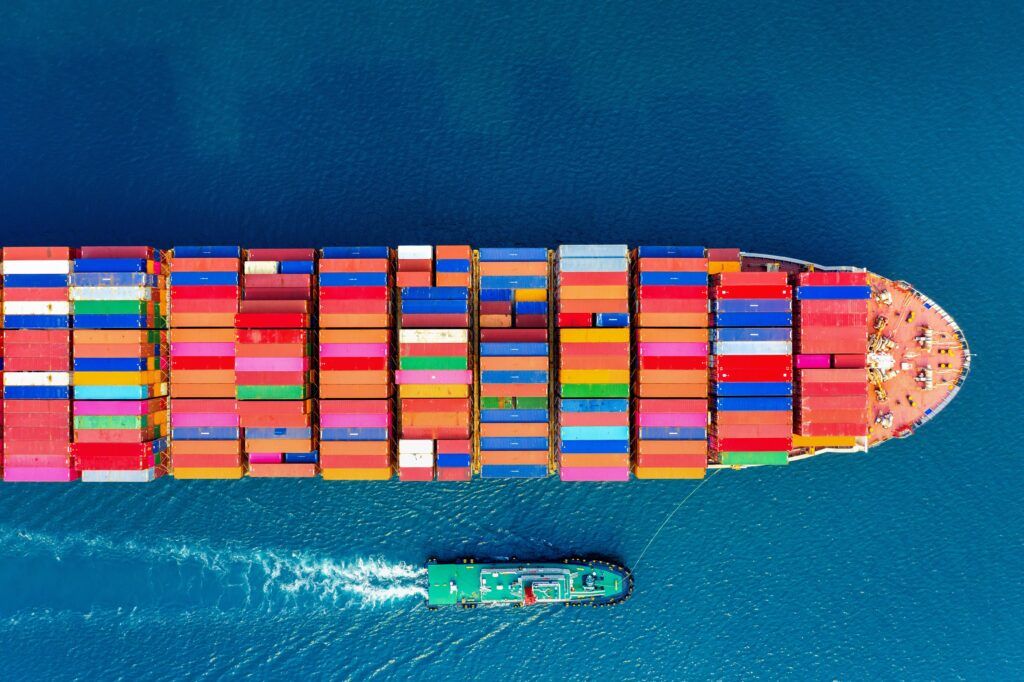
Using non-intrusive monitoring systems, Compass+ predicts the movements produced in different vehicle traffic scenarios taking into account weather conditions (Fp). - Subdrill: drilling robot
Subdrill is a project of the companyGeociencia y Exploraciones Marítimas (GEM) that aims to develop a new remotely operated underwater robotic equipment. It is specifically developed for marine infrastructure requirements and aims to reduce inefficiencies in the value chain of geotechnical campaigns, with very significant savings in production costs.The system consists of a general-purpose robotic drilling rig that descends to the seabed and an operations control room/container, as well as auxiliary elements. For exploration of the marine environment, jack-up rigs or, less frequently, drilling vessels are currently used. Both means are expensive, scarce and result in a slow and weather-dependent process.A grant of € 980,961 has been awarded for this project, which will allow its maturity to evolve into a commercial TRL 7 project.
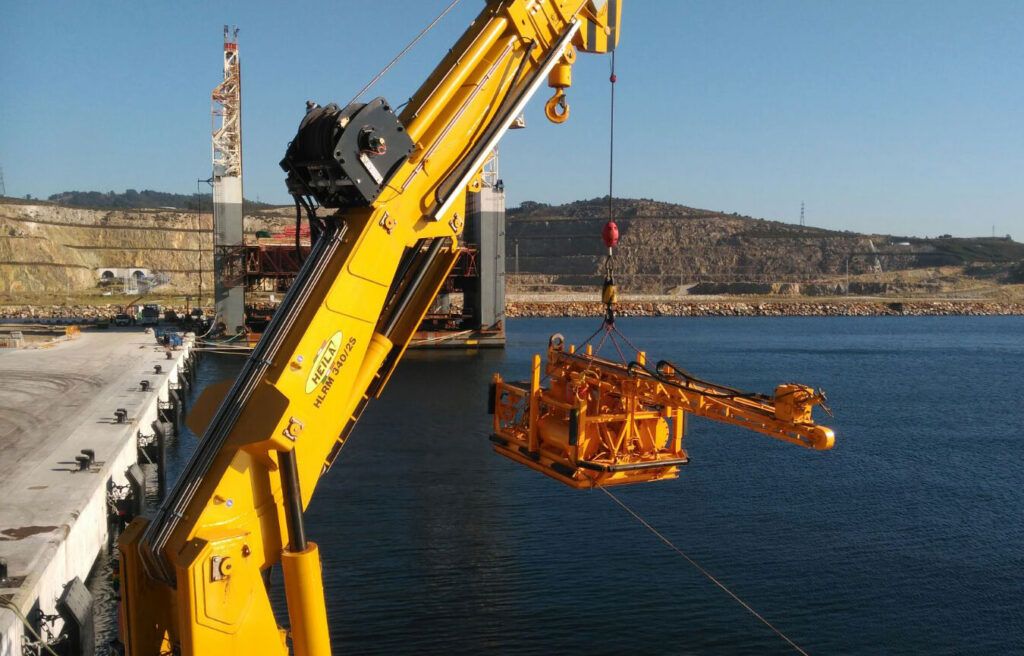
The company Geociencia y Exploraciones Marítimas (GEM) has long been developing new technologies in actions on the seabed, such as drilling equipment. (GEM
- Portnet: blockchain platform for waste tracking and circularity
Portnet is a collaborative and interoperable blockchain platform, which will connect the value chain between waste generators (vessels) and final treatment plants. The aim of this project is not only to improve efficiency in the processes, but also to encourage circularity through the monetisation acquired by the waste through all its transformations and placing it on the market as a raw material.The objectives of the platform are:- Improve the documentary management of Marpol waste through digitalisation.
- Obtain full traceability of waste.
- Promote circularity through the monetisation of waste so that it is perceived as a valuable asset.
- Develop an interoperable blockchain system that can be integrated with other management software.
A grant of €646,139 has been awarded for this project.
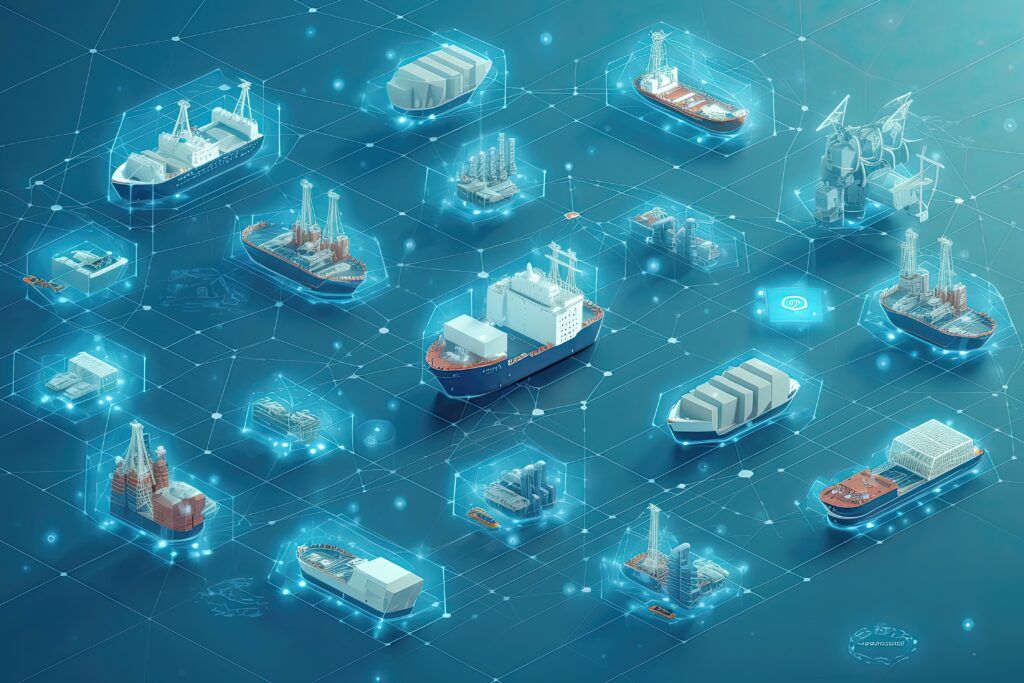
Portnet is a collaborative and interoperable blockchain platform that will connect the value chain between vessels and treatment plants (TP).
- MOLA: a logistics-customs operations management platform
The Colegio Oficial de Agentes de Aduanas y Representantes Aduaneros de Barcelona presents this project to develop a customs-logistics operations management platform. It is intended to be a neutral product for managing customs operations and will provide a single control point for these operations, regardless of the management applications used by each agent. MOLA (Customs Logistics Operations Module) is not designed to manage documents or administrative tasks, but rather to provide control over work, status, traceability and communications, both external and internal, and to facilitate the relationship with external management applications.
The solution, which will be in the cloud, is based on 4.0 technologies and on a simple and agile control, which will be supported by rules and business intelligence (Big Data - AI), connectivity with sensors and other IoT elements, and Blockchain.
A grant of €241,992.96 has been awarded for this project, which will allow the project's TRL to evolve into a commercial TRL 7 project.

MOLA is a cloud-based management platform based on 4.0 technologies (Fp).
- Marinehound: Autonomous Sniffer System
Marinehound is a comprehensive system for continuous monitoring of emissions from ships (Continuous Emission Monitoring System - CEMS) that enables rapid analysis and storage of data on sulphur oxide emissions (Marpol VI) to verify compliance with the limitations established in international regulations for all ships entering port or emission control areas (ECAs). Through a buoy and a drone, it analyses the gases, integrating the data obtained by the sensor in real time with other position or meteorological data in an IoT platform located in the cloud. A grant of €592,308 has been awarded for this project.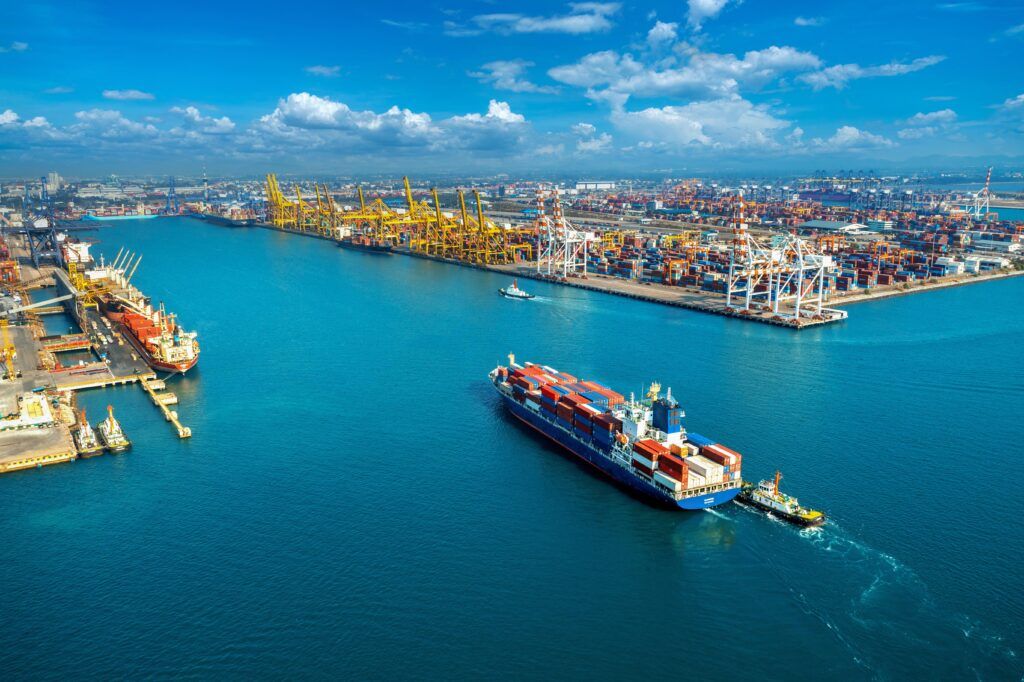
Marinehound is an integral system for continuous monitoring of vessel emissions (Fp).
- SixSenso: in situ detection of micro-organisms in marine waters
SixSenso proposes a rapid in-situ detection system for microorganisms (E.Coli, Enterococci and Phytoplacton) that provides results in less than three hours after sample collection. Currently, the detection of microorganisms is done through laboratory culture techniques and it takes days to get the results. SixSenso offers a solution for early detection of biological contamination in environmental and industrial waters to monitor water quality and prevent and stop outbreaks as early as possible. The product consists of three modules:- Microfluidic labelling system for the detection of microorganisms.
- Laser-based fluorescence reader system.
- Front concentrator system that acts on the water to be analysed and converts it into a useful sample for the analysis system.
This product will help ensure compliance with IMO regulations (D-1 and D-2 IMO 2004) to avoid the presence of invasive species. In addition, it will facilitate the detection processes, being an easy to use and portable system.
A grant of 401,444.16€ has been awarded for this project.
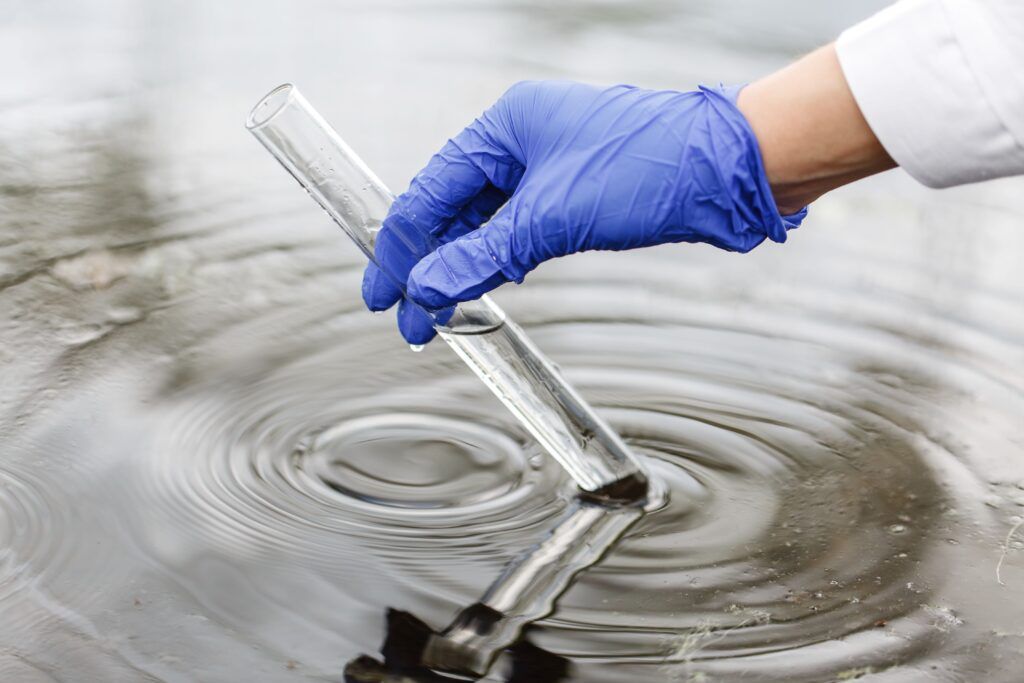
SixSenso is a rapid system for the detection of microorganisms in seawater (Fp).
- Carbon Wage Gauge: sensors for wave measurement
This project, led by two companies,Vázquez y Torres Ingeniería S.L (VTI) and Automation Designs and Custom Applications S.L. (ADECUA), consists of a portable precision system for measuring waves and tides in real time. The measurement system adapts to different types of water: brackish, salt or brine. The technology used for the development of this system has been tested in laboratory conditions and thanks to the grant awarded by Ports 4.0 it will be possible to develop the pilot in a real environment to validate the use of the system.A grant of €447,449 has been awarded for this project.
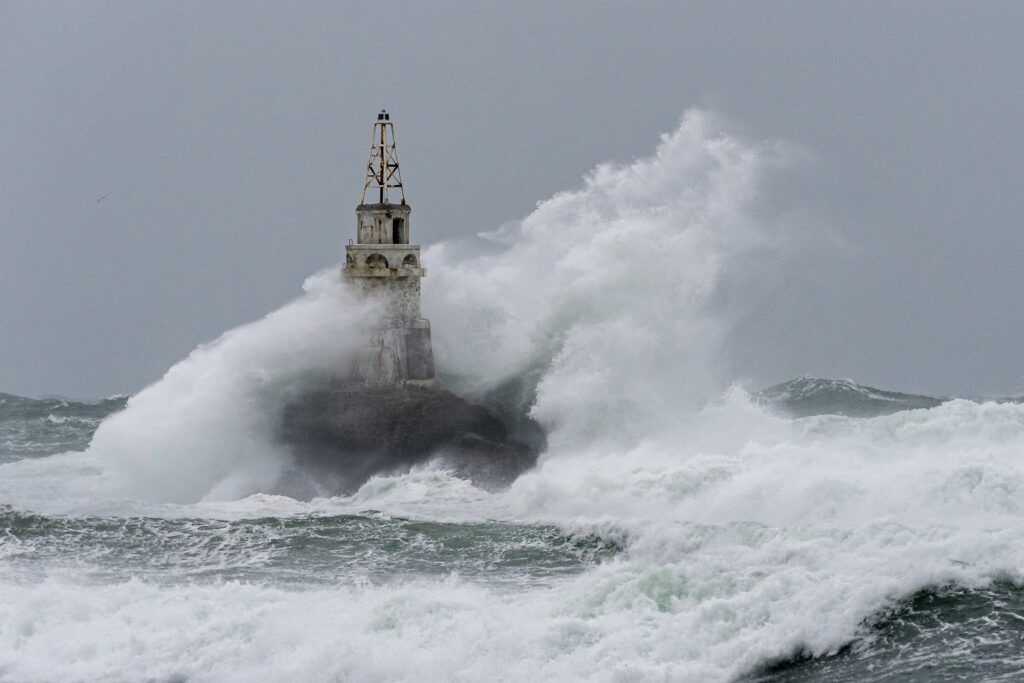
Carbon Wage Gauge is a portable precision system for real-time (Fp) wave and tide measurement.
- Carthago Coating: nanotechnology-based marine antifouling
Carthago Coating is developing a marine antifouling and anticorrosive based on nanotechnology and the use of graphene, from nanotechnology dispersions in different fields of application and, more specifically, in resins and paint bases. As it does not work by exfoliation of product or release of biocides, it does not harm the seabed. In addition, it will improve hydrophobicity and therefore the energy consumed by ships, as well as the maintenance of maritime-port facilities by being part of the anti-corrosion treatment of the product.This project is part of a TRL5 and is awarded a grant of 102,656.44€.
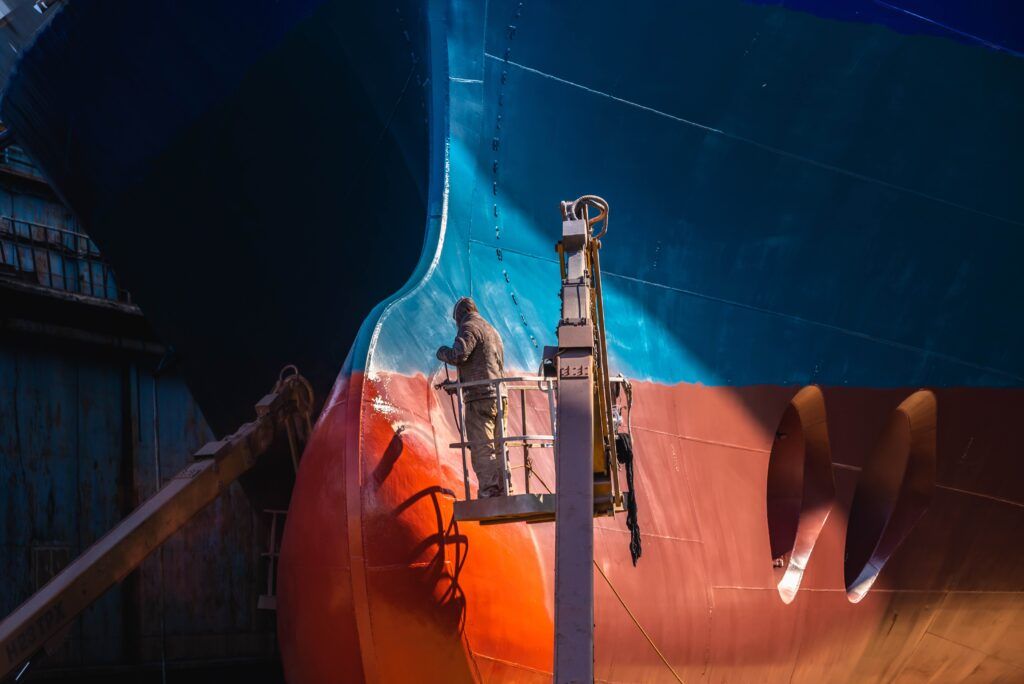
Carthago Coating is an antifouling and anticorrosion based on nanotechnology and the use of graphene (Fp).
Next steps for funded projects
All the projects financed with Ports 4.0 funds aim to promote innovation in the Spanish port community and generate an ecosystem that enables challenges to be solved and processes and operations to be made more efficient and sustainable.
For some time now, the different Port Authorities and ports of general interest have been committed and highly involved in the development of this innovative ecosystem that increases the competitiveness of the sector and gives added value to port activity.
To complement the contributions of this innovation fund, Spanish ports are implementing initiatives to host start-ups, scale-ups and innovative companies.
Some examples of initiatives of this type are PortLab in Bilbao, BlueTechPort and the BCN Port Innovation Foundation in Barcelona, the Lonja de la Innovación in Huelva, the OpenTop programme in Valencia or the Travesía de la Innovación in Algeciras.
In the coming months, a new call for ideas and commercial projects is expected to be opened with a total budget of €6,750,000, distributed in €750,000 for ideas, of which €150,000 will be for intra-entrepreneurship in the port authorities themselves, and €6,000,000 for projects in the commercial phase.
The rules are expected to be very similar to those of previous calls for proposals. This means that, from the opening of the call (to be published in the BOE), companies will have two months to present their proposals for ideas or three months to submit their proposals.
- We encourage startups to apply to the fund, as it provides a great opportunity for funding and collaboration with the port environment.
- The Port of Barcelona provides an email address: innovacio@portdebarcelona.cat, for those interested in applying to receive support from the Port Authority of Barcelona.
- Pitch sessions: https://ports40.es/main/static.html?static_page_id=41


